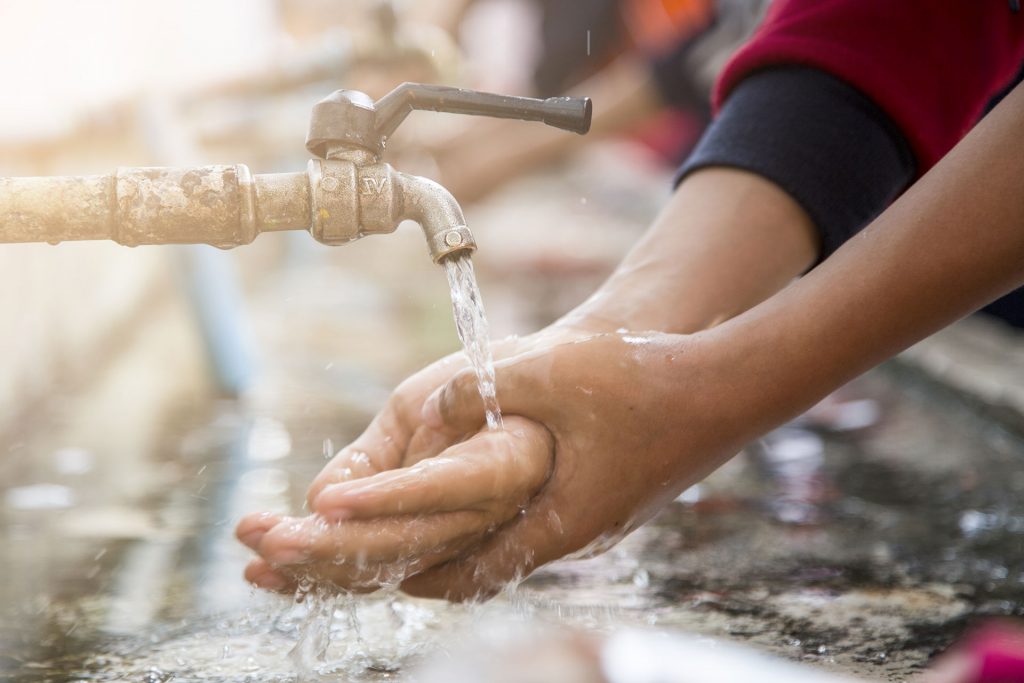heading
PROJECT: GOVERNANCE, ADVOCACY AND LEADERSHIP IN WATER, SANITATION AND HYGIENE (GOAL WASH)Bosnia and Herzegovina

Goals
- Provide technical assistance to the Government of the Federation of Bosnia and Herzegovina to establish a legislative and institutional framework for the water supply and sewerage sector.
- Develop a draft methodology for tariff setting for water supply and sewage services in Bosnia and Herzegovina that shall define tariffs enabling costs recovery. The methodology should also include detailed guidelines for developing a business plan to improve financial and operating performance.
- Develop a proposal on the best administrative positioning of the Regulatory Body for tariff setting of communal affairs of water supply and waste water collection and treatment services. Define tasks and competences of that body, including necessary amendments of Law(s) on Communal Affairs.
- Test the prepared tariff setting methodology, providing support for its implementation in two selected pilot communities (one per each of the two BiH constitutional entities, namely Federation of Bosnia and Herzegovina and Republika Srpska), all in order to justify its applicability and effectiveness and enable replication in other local communities.
Challenge
Weak economic governance and poor infrastructure, caused by years of bad maintenance in Bosnia and Herzegovina’s water sector, is preventing satisfactory delivery and long-term sustainability of water services.
The key long-term challenge in Bosnia and Herzegovina’s water sector is the lack of financial sustainability of water utility companies. Capacities to appropriately manage finances are limited. Accounting and budgeting practices comply with neither national legislation requirements nor international professional standards.
Financial analysis capabilities and the associated ability to undertake strategic financial planning are also inadequate. As a result, water utilities are incapable of investing in their equipment, infrastructure maintenance, or development.
They also lack performance-based management systems and rarely assess public satisfaction with their services. If these institutional weaknesses are not addressed, not only will the current problems with water delivery and quality control persist, but efforts to improve them will not be sustained in the long run.
Opportunity
The present level of crisis in water supply in BiH, where several water utilities are under bankruptcy and many hardly survive daily operations, is an opportunity to finally achieve changes in the sector.
Moreover, the Stabilization and Accession Agreement with the EU is expected to be finally approved during 2015. The EU integration process will have a positive impact on the water sector and will induce improved inter-sectoral coordination and cooperation, what is presently lacking.
Strategy
- Develop a methodology for water and wastewater tariff setting. The methodology should enable all operative costs to be covered, including all investment costs, still these costs have to be minimized and justified.
- Prepare a study with proposal on the best administrative positioning of the Regulatory Body in the process of tariff setting of water supply and wastewater collection and treatment services.
Achievements
The project addressed the country’s water and sanitation problems by conducting a specific assessment of current legislation and institutional set-up, and then providing possible scenarios for establishing a regulatory framework. As a follow-up action, the team developed a methodology for tariff-setting in water supply and wastewater treatment and conducted a study on administrative positioning of the regulatory body for tariff-setting.
The methodology was presented to mayors and municipal councilors within the general assemblies of the Association of Cities and Municipalities of the Federation of Bosnia and Herzegovina and the Association of Cities and Municipalities of the Republika Srpska.
Thematic workshops on the importance of adequate water tariffs in building long-term sustainability of water services were organized for 50 representatives of civil society organizations in Banja Luka, Sarajevo, and Tuzla. Educational materials were developed for municipal councillors (Guidelines for councilors: When considering requests for changes in tariffs of water supply, sewage and wastewater treatment), citizens (How does water get to your tap?), and schoolchildren (How to save water).
The tariff methodology was tested with four water utility companies in Ljubuški, Tešanj, Teslić, and Trebinje. The utilities in Tešanj and Teslić are implementing the methodology and updating their business plans to optimize costs through improved human resources management and employment policy, and enhanced non-revenue water management. They are gradually adjusting their water tariffs. The water utility of Ljubuški has a large income from tourist resorts and has used the profits to subsidise water services and avoid increased water tariffs. (This may change with curtailment of tourism due to the coronavirus disease pandemic.) The water utility in Trebinje adjusted its tariffs in September 2019.
The methodology for tariff-setting has been integrated in the proposal to modify and amend the 2017 Federation Water Law. For the methodology on tariff-setting to be fully adopted and implemented, the ministries responsible for agriculture, water management, forestry, environment, and tourism need to adopt a legal decree, and this process is also being supported by GoAL WaSH.
